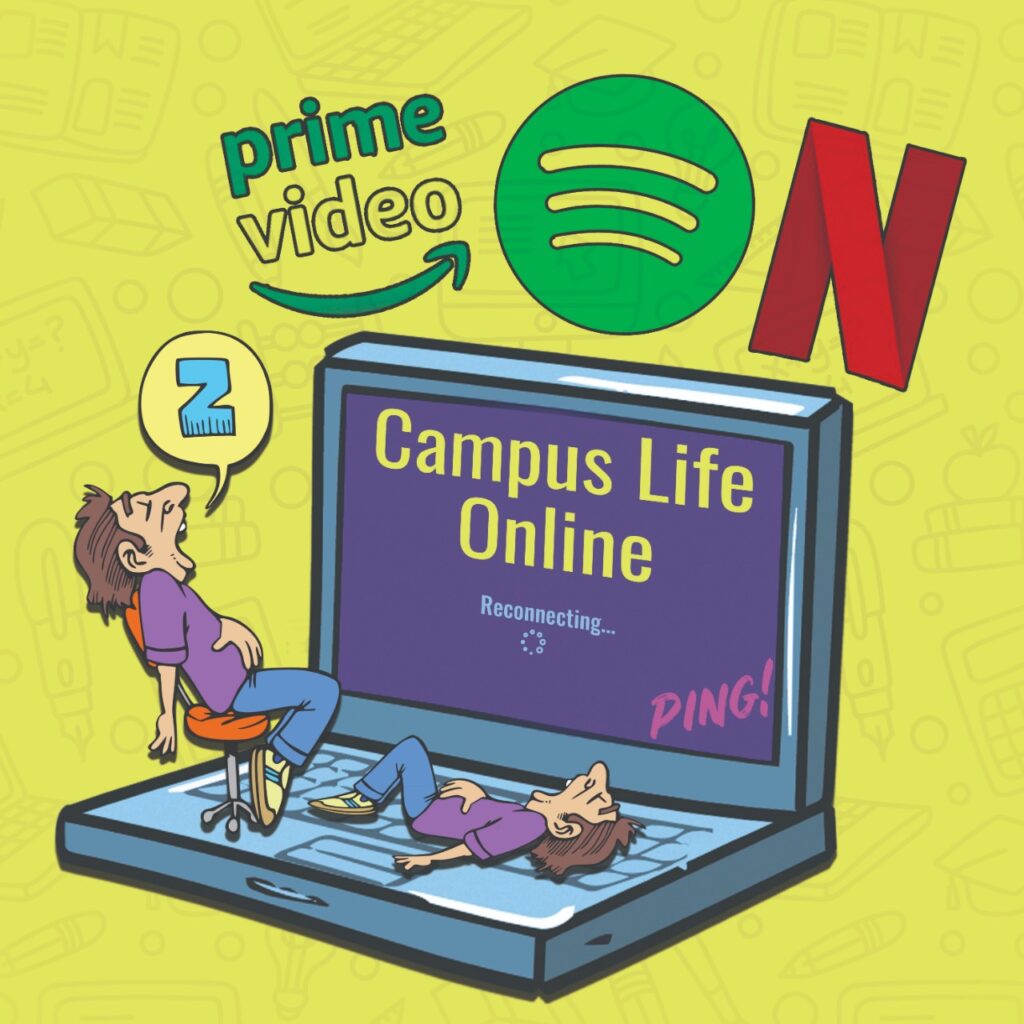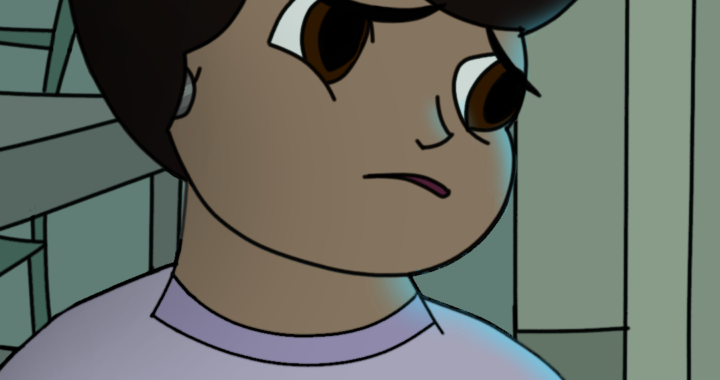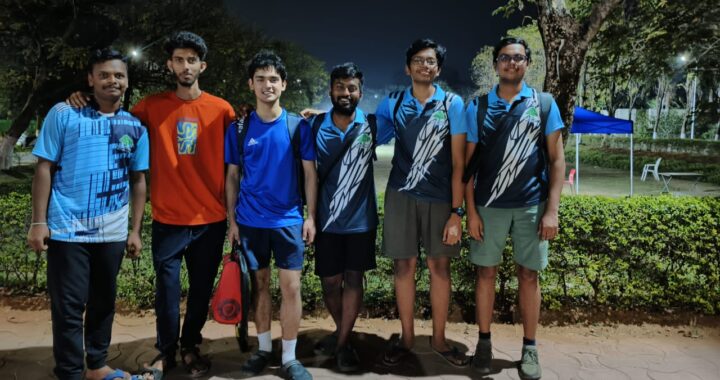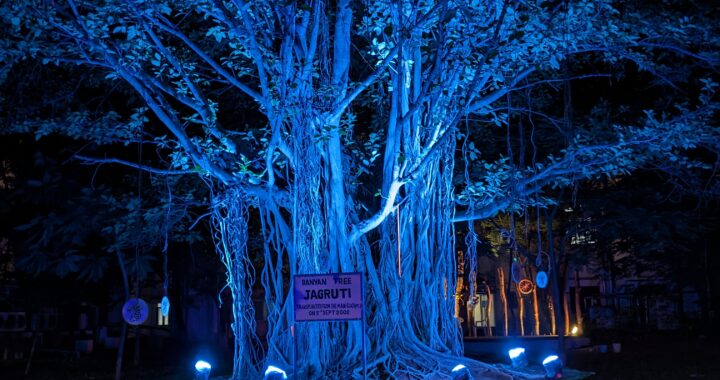Campus Life Online

Introduction: The possibility of an elongated campus life online
How is Life@Microsoft Teams?
We currently face the possibility of the next semester being conducted either partially, or entirely online. While the hope is that the situation would normalise in the coming 2-3 months, it nevertheless remains a likelihood that must be considered. IIIT, unlike most other Indian colleges, has already conducted around half a semester – including end-of-semester evaluations – online, thus giving us a preview of how a “college life” away from the physical college campus might be. The question to ask, thus, is: how has the college going online affected the ‘campus experience’?
It’s not the same
Student reaction to the online half-semester has varied across the board – while there was delight at getting over the academic load with relaxed evaluations (which is not often the case elsewhere in the country, with its reasons), many have raised concerns of being unable to cope with the (sometimes increased) academic load in their home environments.
Being physically away from campus has meant that people no longer have access to a “college” environment and dedicated spaces (the labs, the library, workspaces, their own rooms) for focused work. On top of that, there is no immediate access to friends. While academically this means no casual discussion or peer-generated motivation, it also means there’s no “chilling”. Non-academic activity is significantly hampered. Without the extra-curricular aspects of campus life, there has been no foil for the academic stress.
I have chosen to focus on the latter, non-academic side of the online college experience, the “life” part of it. Specifically, how much of it has carried over so far without the physical presence usually taken for granted; the differences the last 2 months have had from what normally was.
This is an appropriate time to preface what follows with the disclaimer that there is obviously an inherent concern of disproportionate access when it comes to online education, as we have touched upon in the past. Likewise, one’s experience of a non-academic campus life online is restricted due to a combination of the same factors.
The effect on social life and the peer group
Social life is the most prominent victim in this shift. Hanging out with friends. The regular interactions with lab acquaintances and the general peer group that makes for (among others) an improved learning environment. Can this be replaced? Not entirely. Group chats and video calling may be a thing, but as many who have already tried would have noticed in their efforts to maintain friendships over regular online video calls, such online interaction is not a substitute for physical interaction. Not in the long term anyway.
And no, this non-substitutability does not lend itself to simplistic “technology bad” theory. The crucial factor here is that being at home and attending classes is not the same as living on campus and doing so. Where the campus life is a whole social structure built around attending and learning, home is just what we’ve always known as home. Online classes don’t radically transform the lifestyle of it. With online classes, we are presented with a different set of social obligations than otherwise experienced when living on college premises, and the relationships thus differ accordingly.
Most notably, unplanned conversation necessarily takes a hit. As their name suggests, their inherently unplanned nature means that it cannot be forced. One cannot schedule it on the daily calendar of MS Teams [note]
Author’s Note: It is honestly so much easier to just say Zoom instead. No wonder “MS Teams” is not more commonplace in casual talk [/note] calls. That would be of little effect. For example, consider the otherwise regular phenomenon of Casually Chilling in Friends’ Rooms and Finishing Their Water because You Happened to Walk by Their RoomTM. Irreplaceable. The closest one comes to this is when stumbling across one’s friends during otherwise regular online activity – such as on Facebook groups. We’ll get back to more on specifically this later.
On the other hand, attempts can be made at reviving planned regular meetings, such as nightly JC trips, emulated via aforementioned video calls. But is this really a sustainable practice, or another instance of an attempt forcing a sense of normalcy? This leads us back to the point of differing social obligations in a non-campus setting, and the social fatigue arising as a result of attempting to live at home while at the same time also living the campus experience. To add to another point pertinent to the point of the pandemic: when all interaction one has with the outside world is through the screen, screen fatigue is a much realer issue than would otherwise be.
Keep in mind this is in reference to attempts at re-emulating life on campus as it was in its entirety. It is entirely possible to interact with friends on a regular basis online, while changing the dynamics such that they are “just friends” the way one would interact with them outside of a familiar environment – much the way school friends are once we move to college. People can still comfortably interact with each other in gaming groups, group chats, the occasional video call; but experiences dependent on physically being in college are not within this scope of interaction. The implication here is that the relationships sustained within the space of interaction of campus life are fundamentally different from their existence outside of the physical boundaries of it (the campus).
This leads to the broader implication – with a non-physical campus and limited interaction space, there are no new friends. Moodle threads and project teams aren’t particularly known for being friendmakers. As one is not hanging around on campus casually, there’s less unexpected encounters, and less avenue for new friendships. This is a matter that would, in particular, impact the incoming UG1 and PG1 batches more than the rest if the next semester does go online. But this can change. One takeaway from the above can be that if there is a non-academic space for regular interaction online – such as on Facebook, or during online club activities – aspects of what I mention above can be partially mitigated.
Club Activities
Which then brings us to the question of how club activities have been impacted by the campus going online. And interestingly, to an extent, clubs may have actually seen an uptick in activity directly as a consequence of such.
Major events have gotten cancelled due to the pandemic – the Music Club’s Meltdown and E-Cell’s E-Summit [note]
E-Cell is not a club, but the event is being included here as it’s still a student-run body. [/note] among the more prominent ones. So have general non-club extracurriculars such as Cult Night. But new events have since popped up, and several clubs are still active and planning [note]
The author can attest to Ping! having regular activity, partially aided by most of the work being online-only already. Note that such a statement is inherently biased due to vested interests. [/note]. The SLC has reportedly asked for more club activity in the summer, as most people are already online in an infrastructure that allows for team-like interaction. The Gaming Club, for instance, has maintained a presence – initially with members pooling in resources for the Folding@Home program, and otherwise too with regular activity on Discord and virtual DnD Sessions. Several clubs, such as the Music Club, have been hampered by the unavailability of equipment at home. They too, however, are making the best of the situation – having announced a collaborative project this Tuesday (May 19th). The Dance Crew has a video challenge in the works, and E-Cell is running SummerUP, a project-focused activity-event.
In particular, the TV Room Quiz Club has seen an uptick in the events it holds. There had already been one non-Felicity quiz in the semester with another planned just before the go-home notice came, but the club has since held 5 IIIT-Facing Quizzes on Discord, including one in collaboration with members of the Hyderabad K-Circle quizzing community. Within the student community as well participation was incredibly high (for IIIT) with upwards of 30 participants in each quiz. The online nature of the quizzes has also made it much easier for several alumni and other interested quizzers to join. Apart from IIIT-focused events, active quizzers from the club have been increasingly participating in external quizzes as travel is no longer involved.
Generally, while physical access is no longer a thing, students have been coming up with ways to interact with one another, much the way they normally would have on campus. Another example of a non-club, but still student run event is the upcoming UG1 hackathon, that has been conceptualised by students of the UG1 batch, and has since roped in several seniors as mentors, and has set up collaborations with both the Open Source Developers’ Group (OSDG) and E-Cell.
But just porting events to the digital space does not solve the issue of mismatched social obligations. What has allowed such events to be successful in retaining much of the essence of a “campus activity”? First, the low barrier for entry (assuming internet access is a given). Many, even while at home, can dedicate two hours to attend a quiz online. Second, once online, there is now a non-academic, but still (mostly) college-restricted space for interaction – allowing for a more “life on campus” feel than just attending classes and competing for participation points on the Teams chat. And with the discussion on these spaces, we now move to the most prominent example of such.
The IIIT Facebook Groups
Facebook groups are an interesting case, as much of the student life on campus seems to run on Facebook – Meme groups, Life, Lost and Found, Cab-Sharing, Felicity taskforce, most of the club groups. While the usage of Facebook for such critical campus activity is questionable, it is nevertheless in a sense a community of its own, a space for ‘non-academic’ regular interaction between students. And that opens it up to aspects of social life otherwise previously discarded.
Primarily, the increased activity. Interestingly at this specific time (post-endsems), there is more campus-related activity this year than there usually ever is (barring the Cab-Sharing group). There are more memes, more people commenting on them. And most noticable is the creation of new groups that – albeit as a joke – seek to replicate campus life through relatable content that would normally have been posted. “A group where we pretend to be back in IIIT” is a noteworthy example. Formed in the vein of several other “pretend” groups that swept across Facebook in late April, it saw an unprecedented scale of activity in the first two weeks of its creation. While the frequency of posts has since died down a bit after all the cliches were played out, the impact it had is undeniable.
This then provides another space for the aforementioned “casual interaction”. What was previously closed in classes, opens up again in the comment sections of every group other than Life. It is limited and not a substitute for what was, but it is a space within its own rights nonetheless.
Things could be better, things could be worse, but there’s no JC away from IIIT
Life in Microsoft Teams is not the same as life on campus. As the pandemic rolls on, the reality of an online Monsoon 2020 is that it is not – and can not – be a substitute for actually being at the place, in more ways than just academically (although academics are important as well and crucial considerations will have to be made for classes, evaluations, and grading if it does come to pass).

 We Are So Cooked
We Are So Cooked  Qu’ils mangent de la grenouille! (Let Them Eat Frogs!)
Qu’ils mangent de la grenouille! (Let Them Eat Frogs!)  Tale of Two Cheenties
Tale of Two Cheenties  Peace of mind.
Peace of mind.  Boats and Valorant
Boats and Valorant  Blessings
Blessings  A perspective on sports in IIIT
A perspective on sports in IIIT  Paintings of IIIT
Paintings of IIIT  The Tale of Jagruti
The Tale of Jagruti  Cleaning up the Mess?
Cleaning up the Mess?
1 thought on “Campus Life Online”
Comments are closed.